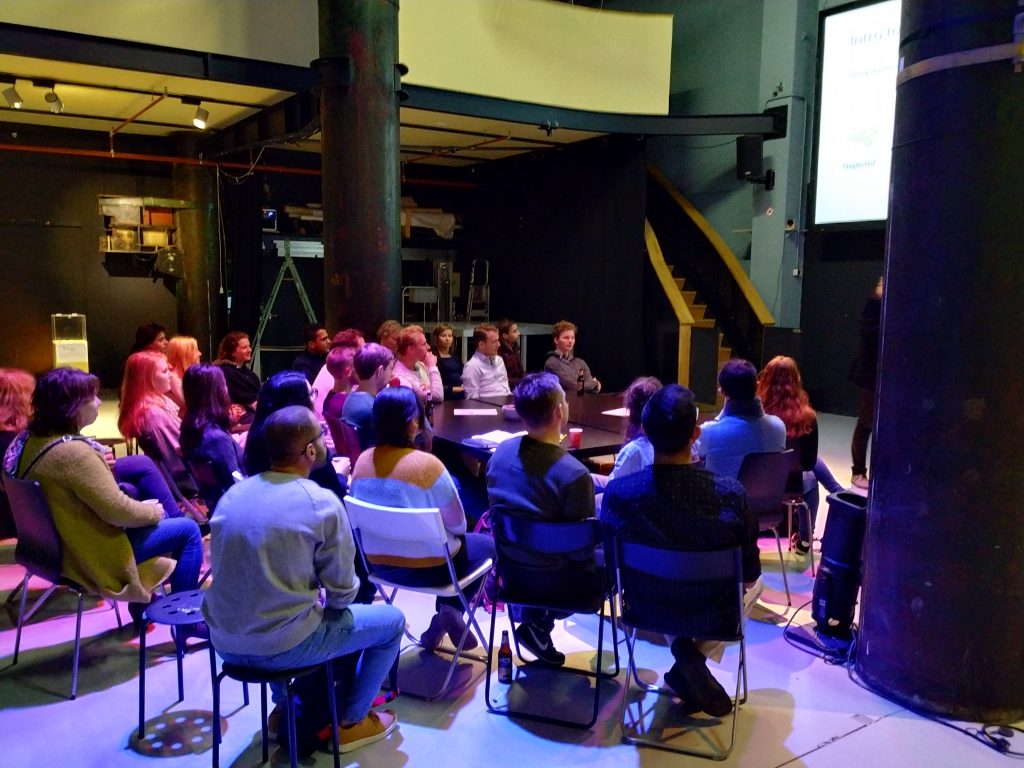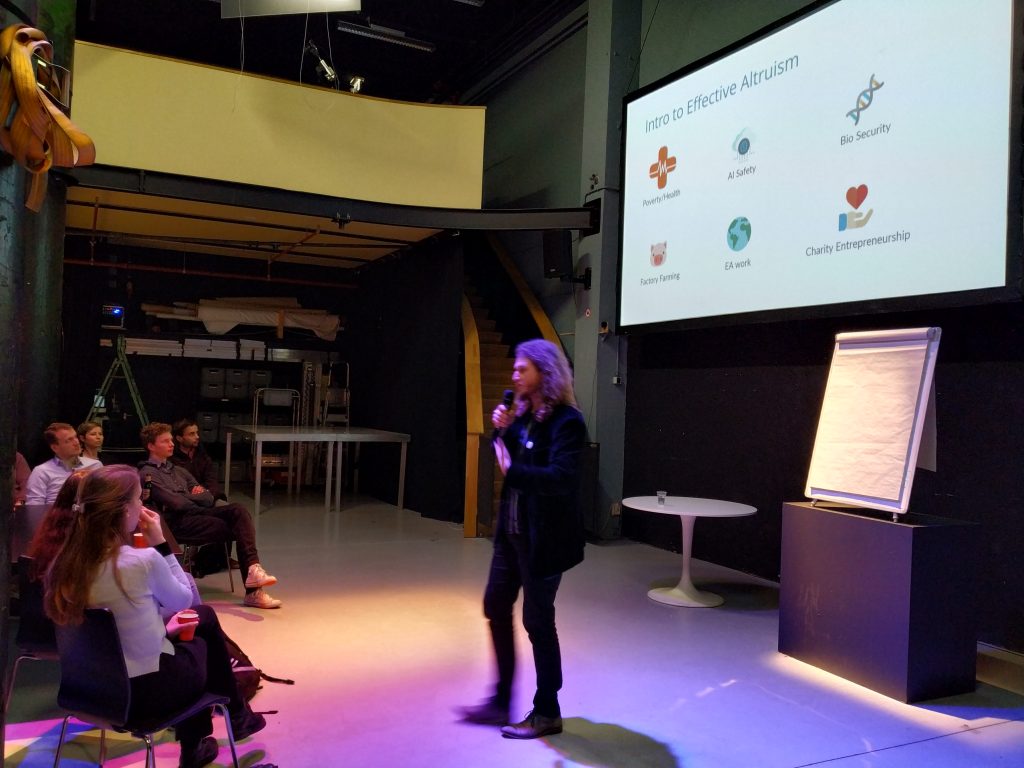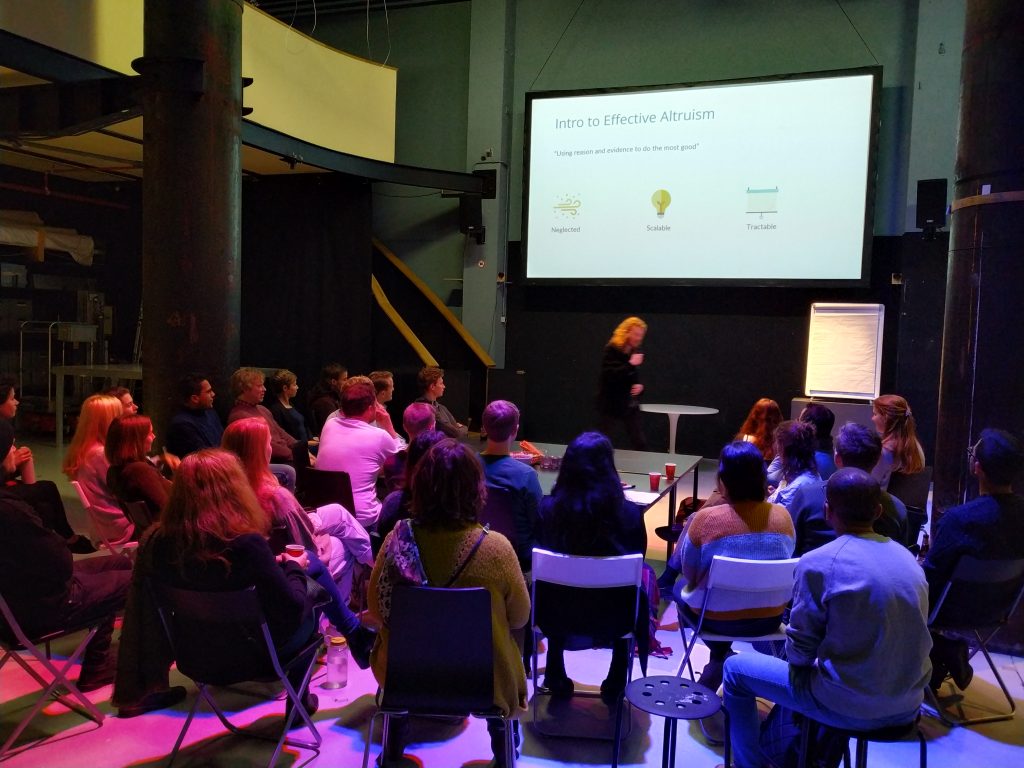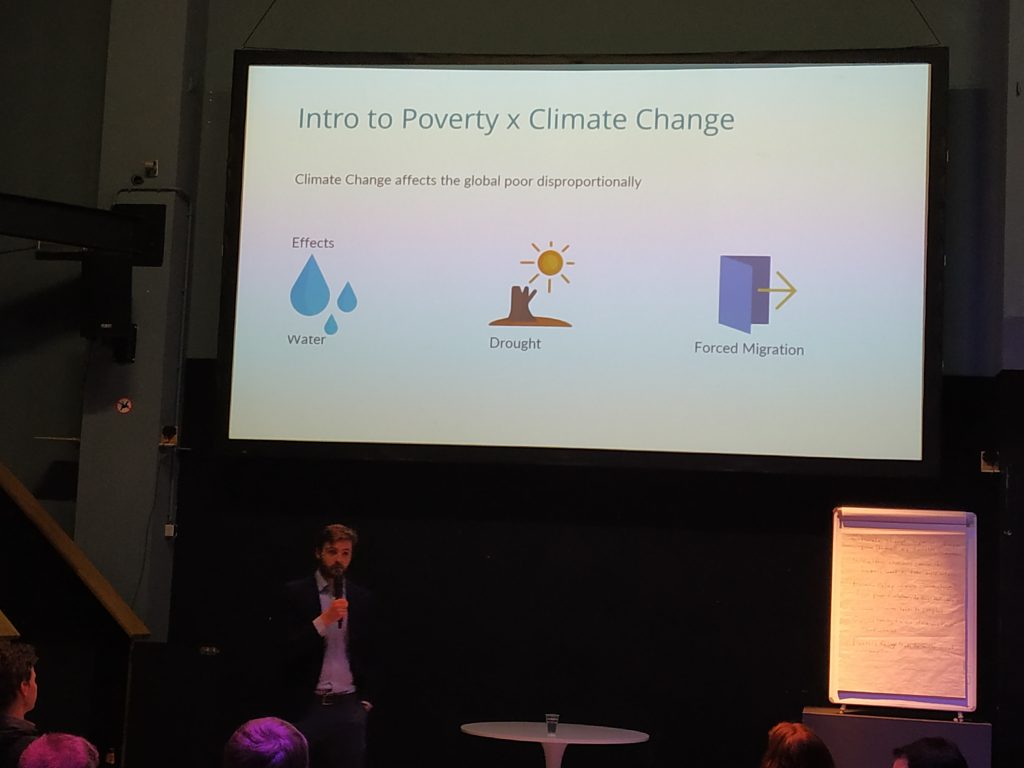- Sort Blog:
- All
- Book Reviews
- EA Rotterdam
- Essays
- Flotes
- Goals
- Links
- Series
- Short Stories
- Uncategorized
Futuristic Novels
Since not long ago I’ve become captivated by futuristic novels.
The three that I’ve read are The Martian by Andy Weir, Ready Player One by Ernest Cline, and I Robot by Isaac Asimov.
Visions of the Future
Each novel presents us with a different future, some more realistic than the others. What I love about them is that they present us with a mirror. Not a mirror for looking back, but a mirror for looking forward.
In The Martian, we are asked the question of how far humanity will go to save a man. In I Robot we are presented with many of the dilemma’s we will face (or are already facing) with artificial intelligence.
And at the same time, they showcase very human skills. When reading The Martian I was struck by the ingenuity of the main character and how much he wanted to live. And in Ready Player One, I couldn’t put down the book because I was rooting so badly for the underdog to win.
Broadening the Horizon
Above everything else, futuristic novels have broadened my horizon. They help me understand that there are many possible futures. And they have taught me that shaping that future is very much in our own hands.
Of course, these books are only but a few of the books available that broaden our horizon. If you have any book suggestions (futuristic or not) please leave them in the comments below.
Forever Learning
When most people graduate they stop learning. It has been fun (or not) and now that you’re an adult, why should you keep on studying?
One Career
When you get your first job it’s very likely that you will learn skills on the job. But when I’m confronted with people who’ve been in the same job for years, I feel like I could just as easily been speaking to their 20 years younger version. They’ve become compliant and lack the incentive to learn.
Not only in work do I see that people stop learning. Even in my own life I regularly take my knowledge for granted. I can swim as fast as years ago and new cooking recipes are few and far between.
Changing World
That’s a problem.
The world is changing at an exponential pace (more on this in a later post). Our computers become smarter every day, jobs get automated. Whole industries get uprooted and many people lose their jobs.
Keep on Learning
One remedy against becoming a victim of this changing world is to have a wide base of knowledge.
This has two distinct advantages. The first is that you have a wider understanding of the world and everything in it. The second is that you learn to see how concepts between industries/jobs/interests are linked.
By continuing to learn you can make yourself more future-proof.
And it can be fun, just listen to John Green (author, vlogger, awesome):
Here are some more educational YouTube channels I like:
CrashCourse – Animated courses (on anything from Psychology to World History)
TED – Sharing ideas
CGP Grey – Animated explanations
Kurzgesagt – In a nutshell
MinutePhysics – Physics explained
Numberphile – Math quirks
Periodic Videos – Periodic Table
…see more of my subscriptions right here
Forcing Creativity
Some individuals seem to be more creative than others. I wonder why.
Skills and Abilities
A common misbelief is that you are born with innate abilities. In Outliers, Malcolm Gladwell demonstrates that innate skills have virtually no impact – he states that you need about 10,000 hours of deliberate practice.
Things like your height are not changeable. Everything from how many things you can remember to the strength of your body can be changed. The former was beautifully demonstrated by journalist Joshua Foer, who became captivated with memory competitions and ended up winning it (TED Talk). The latter can be demonstrated by an athlete, just study the routines that Michael Phelps goes through each week.
This also applies to creativity.
Robert Rodriguez
When Rodriguez shot his first (demo) movie, he had a budget of 7.000 dollars. He came from a family of 10 and got part of the money by being a guinea pig in medical tests. He didn’t have a big movie budget, yet ended up winning the Audience vote at Sundance Festival.
He did this in many ways. He used the ranch of a friend, a bar of another friend, a dog of… etc. What also helped him was his experience with writing comics. He forced himself to draw every day. And yes, not every comic was great, but the one not-so-good lead to a better one.
Listen to an interview with Robert Rodriguez on the Tim Ferriss Show
Take Home
The take home is that all skills, creativity included, come from continuous practice. Mozart started making his phenomenal work only after the first 10,000 hours – but he did need that practice first.
On a personal note, I too am practising and are far away from mastering blogging. But I’m on the way and enjoying the ride. It has already brought me positive (financial) outcomes and teaches me skills I can use in other aspects of my life. Please also take home that learning itself (as mentioned yesterday) is fun too.
On Being an Entrepreneur
“You miss 100 percent of the shots you don’t take.” – Wayne Gretzky
Being an entrepreneur is the most challenging, exciting, fun and amazing thing you can do with your life.
You are in complete control, you are totally responsible. And that’s where the mix of emotions comes from, having the freedom to be the captain of your ship and having to take care of the crew.
Great Uncertainty
What I find most challenging is the uncertainty of entrepreneurship. As a young entrepreneur, I don’t have a big telescope to see far ahead or the flexibility to look all around me. And when the waters get rough, it’s me who needs to remain calm.
Sometimes I wish I was in a ‘normal’ corporate job, a job with a guarantee of payment and nice benefits. But I also realize that you are essentially rowing someone else’s ship. If that’s for a good cause, a great venture you love or public institution I think it can be the right path for many people.
I want to be the captain of my own ship.
Taking Control
Time is my most valuable asset (and it’s yours too). Today, tomorrow and in the future, I can decide where I want to spend that time.
My time of course also gets determined in a small part by the needs of my business, but I was the one who originally decided on making the business. It’s also me who decides of the needs of the business are important, not someone who happens to be in a company for a bit longer than myself.
In the past year I’ve also found out that when you are free to learn, you learn really fast. I now know the basics of taxes, marketing, strategy and many more topics. At the same time, I’ve had a crash course on delegating and know very well that I can’t do everything alone. It’s by working together with a great partner (Onno Smits) that I’ve been able to build a great business. A business in which we can enjoy going to work each day.
SS Wolswijk
I’m building my own ship and it becomes a little bit bigger each day. On my journey, I am sure that I will encounter rough waters, pirates and even icebergs. I also know for sure that I will be able to overcome these obstacles and sail on. I might even see some friendly ships next to me.
Striving for Contentedness
A challenge that I face is getting a balance between striving/hunger/achieving and content/tranquil/calm. On the one hand, I want to become more, to change and challenge my own status quo. On the other hand, I want to be happy in the moment, feel present and satisfied.
High Achievers
On the Four Hour Workweek Podcast (highly recommended) I heard Tim Ferriss and Brené Brown also discuss this topic. Tim outlined the following:
Although I’m quite happy where I’m at now, I have higher ambitions. I set goals and these are different from where I’m currently at. Therefore I deliberately create a discrepancy between my future and current situation (also called: ideal self and current self). This makes me discontent with my current situation and activates me to challenge myself and move forward. By making my goals and moving forward, I in effect have made myself less content with the current situation.
The questions: Is there a way to be both content with the now and strive for more?
Healthy Striving
Brené answered the question in two parts. The first is that striving should not be there to prevent criticism. Your success should not be outwardly defined. You should strive to build yourself. The second is that you should be present focussed. That means that you should think about the smaller parts of your goals, the actions you can take directly and not only think about what you want to have in the future.
If we were to compare striving and contentment to driving in a car, I would image the following. Your (big) goals are the horizon, the mountains you are driving towards or something else far away. Closer by are birds, trees, buildings and even a red light every once in a while. And although you should enjoy and strive to go to the mountain, don’t forget that you are already driving and can enjoy the ride in the present moment.
Persuasion
“Where all think alike, no one thinks very much.” – Walter Lippmann
Lessons learnt: Everyday we are influenced through techniques that exploit reciprocity, commitment and consistency, social proof, authority, liking, and scarcity. Influence can be misused. Knowing the techniques can help you fend against the negative effects of influence.
Have you ever been influenced to do something you did not fully support? Or have you looked back at a buying decision you have made and seen that this may not have been the best bang for your buck? If yes, then you are among the great majority (may I say 99.999%) of people who have been influenced by others. In many cases, we do not really know why we have made decisions and what has influenced us in making it. Robert Cialdini was determined to find out, and did, in Influence: The Power of Persuasion.
In his seminal book, he defines six techniques of persuasion.
- Reciprocity – exchanging goods/services for the (mutual) benefit
- Commitment and consistency – saying yes after you have said yes once (to a smaller request)
- Social proof – following your friends (the herd)
- Authority – obedience to people in authority positions
- Liking – being more easily influenced by someone you like
- Scarcity – something is more attractive if it is limited
Cialdini discovered the techniques by working with (or secretly infiltrating) organizations that specialize in persuasion (also called compliance experts). From his research he has come up with two conclusions: 1) the power of influence is very strong and 2) it is very easily abused. But before we go into depth on the dark side of influence, let’s consider how one of the techniques works.
Authority, the fourth technique, I think is the fascinating example of influence. It was made famous by the Milgram experiments in the 1906’s. Here, people were asked to give shocks to another participant in the study. They had to give a shock when the other participant (secretly a research assistant) wrongly answered a question. Psychologist and other experts expected the participants to only give mild shocks and for only psychopaths to complete the experiment (up to 450volts). The results, however, show that about 65% completed the experiment.
You may ask why? Where these people all psychopaths (nope, just normal students or business people)? Or maybe they did not know what the shocks did (they could see the research assistant acting as if he was in great pain)? No, it was the power of obedience to authority. Once the researchers changed the experiment leader from a lab coat to wearing normal clothes, the whole effect subsided and people quit the experiment much earlier.
On a lighter touch, authority still has power, even when it does not mean anything. Advertisers are willing to pay a lot for celebrities to promote their brand. But what does Britney Spears know about the qualities of Pepsi, or a TV doctor about [insert brand name] aspirin? Even I self have experienced the power of authority. When walking around in my suit (I did a board year for a study association), I could feel that people would be more open to my suggestions and bend to the power of authority.
“A well-known principle of human behavior says that when we ask someone to do us a favor we will be more successful if we provide a reason. People simply like to have reasons for what they do.” – Robert Cialdini
In each chapter, Cialdini takes one of the techniques and explains the science behind it. At the same time, he uses real-life examples that are (too) familiar to us. What I love is that he ends each chapter with some tips and tricks to avoid being influenced by salespeople and the like. In the end, influence is a short-cut (a very useful one) that we humans use to prevent our brains from overloading (see also Thinking, Fast and Slow). In most cases we can use it to our advantage, now we have a way to prevent other people from abusing it.
Poverty & Climate Change
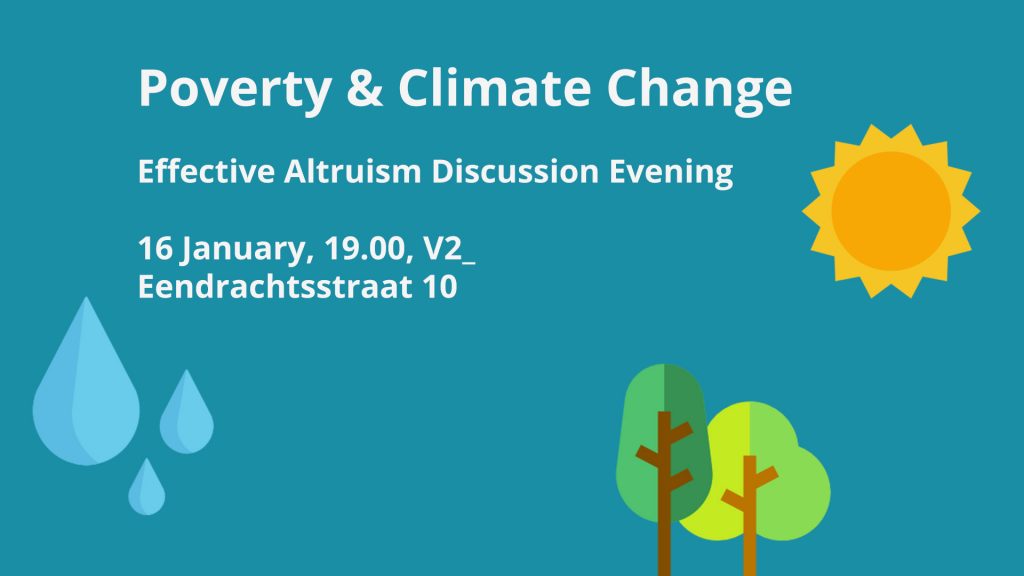
On Wednesday 16th of January 2019, the EA Rotterdam group had their sixth reading & discussion group. This is a deeper dive into some of the EA topics.
The topic for this event was Poverty & Climate Change.
During the evening we discussed how poverty and climate
These were our starting questions:
- – What is the (future) impact of Climate Change on Poverty?
- – How will Climate Change affect the world’s poorest?
- – How can we measure this impact?
- – What can we do to prevent/mitigate this?
- – What are the most effective interventions to combat (the effect of) Climate Change?
- and more
that we will discuss then
We (the organisers of EA Rotterdam) thank Alex from V2_ (our venue for the night) for hosting us.
If you want to visit an EA Rotterdam event, visit our Meetup page.
Poverty and Climate Change
We started the evening with a presentation by Joeri and Christiaan. In it they explained both Effective Altruism (EA) and how (through this framework) we look at climate change.
After that, we split the group into two and both groups worked on making a mindmap/overview of the questions asked above (and some more, download them). This is a summary of what we discussed:
Group 1
We have the raw materials for wealth growth. The problem lies in the distribution. We also focus too much on materials as opposed to other growth (e.g. art/civil society).
What we can even see is a “luxury minimalism”amongst our peer group (a counter to the materialist mindset of our time. What we tend to forget is the real cost of products.
We talked about the impact of poverty relief on climate change. For instance where people get access to more transportation options (bikes -> motorcycles -> cars), there is more and more pollution. People take a car when they could have also biked. India and China are places to look at both for the growing problem and possible (electric?) solutions.
Is it selfish/hypocritical to limit
A combination of interventions (policy level) and consumer responsibility could pave the way forward. Democracy (the best of the worst) was discussed as being the best way to do this.
Climate change has a huge effect on poverty. Many of the consequences will be the effects of the effects. People who will have drought or too much rain will have to move, and this will very likely lead to conflicts.
Poverty relief also leads to stabler societies, less (unwanted) pregnancies and through this way will possibly lead to less climate change.
In the end group 1 discussed the role of multinationals. They don’t pay the real costs of what they make and there is little accountability. Advocacy directed at them may have a significant (positive) impact. (e.g. just today Samsung announced that they will stop packaging their products in plastic in the near future).
Group 2
Corporate responsibility was
We also need more education. There are still many myths about climate change (sorry Americans,
A lot of thinking is short-term. Many people don’t (ever) think about the long-term effects of their actions. Through tax reform and collective (vs individual) thinking we could have a positive impact. But we need small steps (in the right direction) to get there.
Conclusion
Climate change and poverty are both large topics that require more than an evening to discuss and flesh out. Below are the resources we consulted and shared with the participants. Please go and read/watch some to get a better understanding of the topics.
Climate change is having a direct negative effect on the poorest of the world. We should hurry and be open to new solutions in fighting the causes and effects of climate change. Limiting the (economic) growth of people coming out of poverty is not the most efficient solution. Taxing and changing the way the richest consume (including the ‘average’ person in the West) should be a priority. You can make changes yourself, as do multinationals and governments.
At last I will leave you with a reading tip: Let My People Go Surfing. About how one company (Patagonia) is trying their utmost best to do the right thing!
Resources
Starting/Preparation reading/watching:
– https://www.youtube.com/watch?v=G4H1N_yXBiA (Climate Change in 3 minutes)
– https://www.youtube.com/watch?v=OWXoRSIxyIU (Veritasium on Climate Change in 7 minutes)
– https://www.ipcc.ch/ (Climate Change model)
– https://www.indiawaterportal.org/articles/global-warming-impacts-india-be-huge (impact on India)
– https://www.theguardian.com/environment/2017/jul/31/suicides-of-nearly-60000-indian-farmers-linked-to-climate-change-study-claims (impact on suicide in India)
– https://www.sciencedirect.com/science/article/pii/S2210600615300277
s_cid=mm6525a1_w?ftag=MSFd61514f (impact on suicide in India)
– https://models.pbl.nl/image/index.php/IMAGE_framework (Global Development model)
– https://ec.europa.eu/jrc/en/research-topic/desertification-and-drought(Drought)
Some more links for the interested:
– https://www.pbl.nl/en/publications/trade-offs-and-synergies-between-universal-electricity-access-and-climate-change-mitigation-in-sub-saharan-africa
– https://www.pbl.nl/en/publications/people-and-the-earth
– https://www.pbl.nl/en/publications/2012/roads-from-rio20
– https://www.unenvironment.org/resources/global-environment-outlook-5
– https://www.ipcc.ch/sr15/chapter/chapter-5/
– http://hdr.undp.org/en/content/climate-change-and-human-development
Download the full resource list

